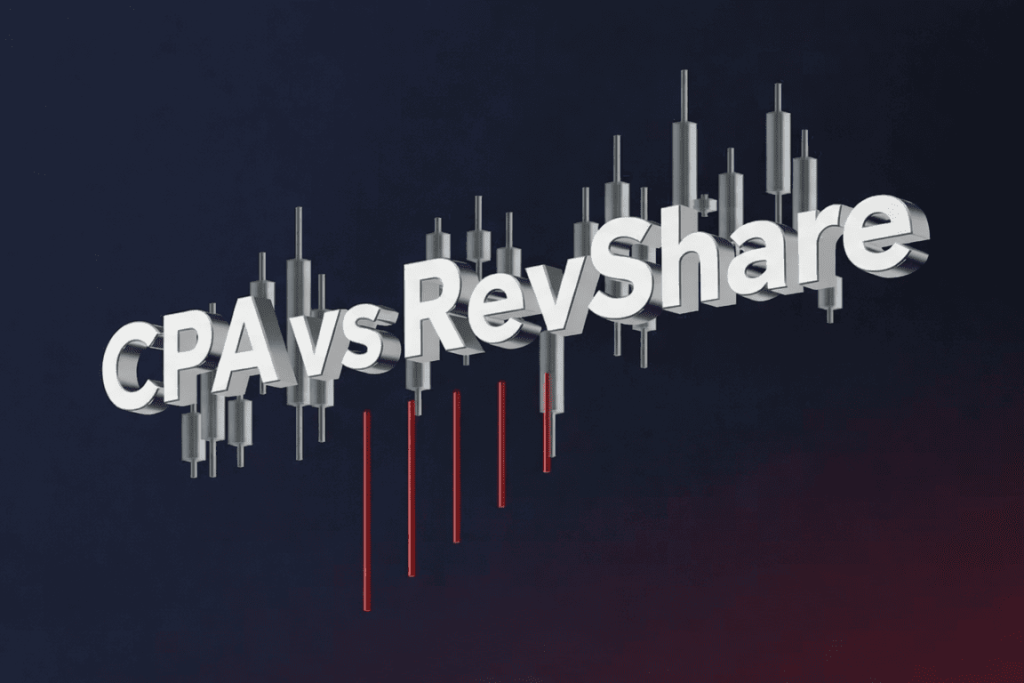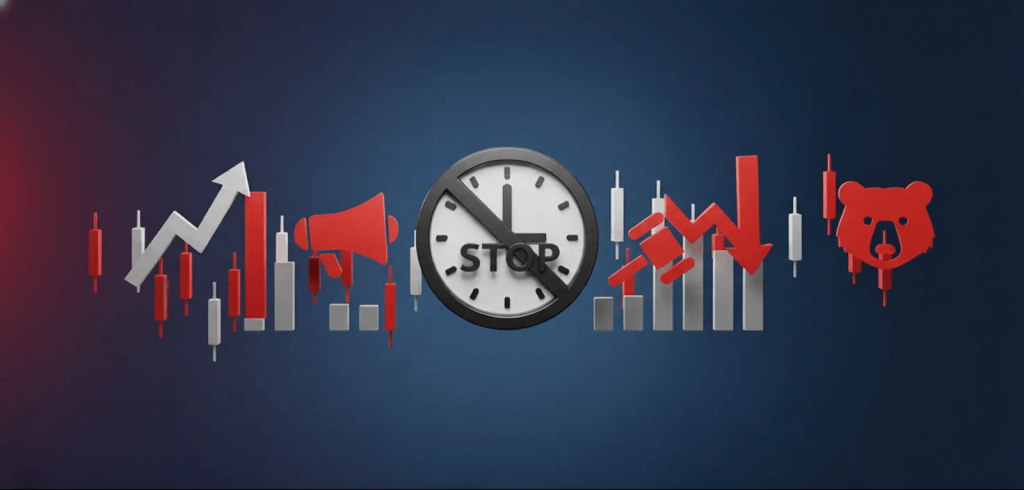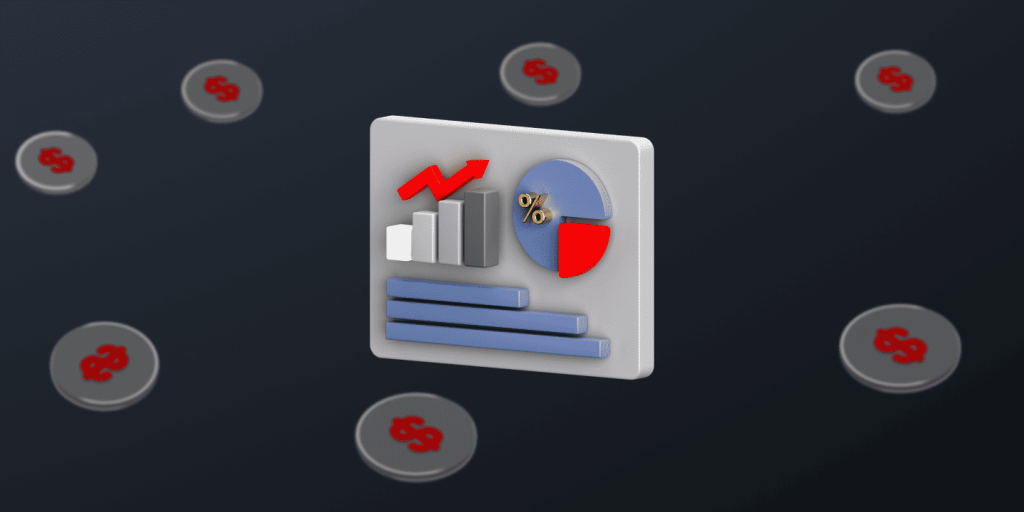
DMA (Direct Market Access) คืออะไร?
เนื้อหา
การเข้าถึงตลาดโดยตรง (DMA) เป็นวิธีการซื้อขายที่อำนวยความสะดวกให้ผู้เข้าร่วมตลาดเข้าถึงโดยตรงเพื่อส่งคำสั่งซื้อขายโดยตรงไปยังสมุดคำสั่งซื้อขายในตลาดแลกเปลี่ยนทางการเงิน โดยไม่ต้องมีการแทรกแซงจากนายหน้า
DMA ยังคงมีความสำคัญในสภาพแวดล้อมการซื้อขายสมัยใหม่ เนื่องจากมีคุณสมบัติดังต่อไปนี้:
- การดำเนินการที่รวดเร็วยิ่งขึ้นซึ่งเป็นสิ่งสำคัญสำหรับกลยุทธ์การซื้อขายความถี่สูงและการซื้อขายระหว่างวัน
- ความโปร่งใสของความลึกของตลาดแบบเรียลไทม์และการกำหนดราคา
- ควบคุมพารามิเตอร์การซื้อขายของคุณได้มากขึ้น รวมถึงเวลาด้วย
วิธีการซื้อขายนี้มักถูกใช้โดยกองทุนป้องกันความเสี่ยง ผู้ค้าอัลกอริทึม และผู้ซื้อขายที่มีทักษะซึ่งกำลังมองหาวิธีปรับปรุงประสิทธิภาพในตลาดที่เคลื่อนไหวรวดเร็ว
การกำหนดการเข้าถึงตลาดโดยตรง
การเข้าถึงตลาดโดยตรง (Direct Market Access) ถือเป็นแนวทางการซื้อขายที่ก้าวล้ำ ช่วยให้เทรดเดอร์สามารถป้อนคำสั่งซื้อและขายลงในสมุดคำสั่งซื้อขายของตลาดหลักทรัพย์ได้โดยตรง เส้นทางตรงนี้แตกต่างจากวิธีการที่โบรกเกอร์ทำหน้าที่เป็นตัวกลางและดำเนินการซื้อขายแทนเทรดเดอร์ วิธีนี้ช่วยให้เทรดเดอร์สามารถใช้ประโยชน์จากสภาวะตลาดได้อย่างรวดเร็วโดยไม่เกิดความล่าช้า ซึ่งมักเกิดขึ้นกับธุรกรรมที่โบรกเกอร์เป็นผู้ดำเนินการ
การพัฒนาของ DMA ดำเนินไปควบคู่ไปกับความก้าวหน้าทางเทคโนโลยีการซื้อขาย วิวัฒนาการของระบบการซื้อขายไม่เพียงแต่ทำให้ DMA เป็นไปได้เท่านั้น แต่ยังมีประสิทธิภาพที่ยอดเยี่ยมอีกด้วย ระบบเหล่านี้มีประโยชน์อย่างยิ่งสำหรับนักลงทุนสถาบันที่กำลังมองหาการดำเนินการซื้อขายที่รวดเร็วและมีปริมาณการซื้อขายสูง DMA ช่วยให้นักลงทุนเหล่านี้สามารถเพิ่มประสิทธิภาพ กลยุทธ์การซื้อขาย เพื่อให้มั่นใจว่าตอบสนองต่อการเปลี่ยนแปลงของตลาดได้อย่างรวดเร็วและมีประสิทธิภาพ
DMA มีอิทธิพลต่อตลาด นำมาซึ่งการเปลี่ยนแปลงครั้งใหญ่ DMA ช่วยให้ทุกคน ตั้งแต่นักลงทุนไปจนถึงเทรดเดอร์รายย่อย มีโอกาสเข้าถึงตลาดอย่างเท่าเทียมกัน การมีส่วนร่วมนี้มีบทบาทในการสร้างสภาพแวดล้อมการซื้อขายที่เป็นธรรม นอกจากนี้ DMA ยังช่วยให้เทรดเดอร์เห็นภาพรวมของราคาตลาดจริง ช่วยให้สามารถตัดสินใจได้อย่างชาญฉลาดโดยอิงจากข้อมูลตลาดที่เชื่อถือได้
You may also like

ใครใช้ DMA?
Direct Market Access เหมาะสำหรับเทรดเดอร์ที่ต้องการการดำเนินการที่รวดเร็ว โปร่งใส และยืดหยุ่นที่สุดเท่าที่จะเป็นไปได้ เป็นที่นิยมในหมู่เทรดเดอร์มืออาชีพหรือผู้ที่พึ่งพาเทคโนโลยีและประสิทธิภาพเป็นหลัก แทนที่จะเข้าถึงโบรกเกอร์ ดังนั้น ผู้ใช้หลักๆ มีดังนี้:
ผู้ค้าสถาบัน
กองทุนเฮดจ์ฟันด์ กองทุนบำเหน็จบำนาญ และผู้จัดการสินทรัพย์ใช้ DMA เพื่อดำเนินการคำสั่งซื้อขายขนาดใหญ่โดยที่ตลาดทั้งหมดไม่ทราบถึงเจตนาของพวกเขา การโต้ตอบโดยตรงกับสมุดคำสั่งซื้อขายช่วยลดผลกระทบต่อตลาดและปรับปรุงการดำเนินการ
ผู้ค้าปลีกขั้นสูง
โดยเฉพาะเทรดเดอร์รายบุคคลขั้นสูง (ผู้ที่ใช้การวิเคราะห์ทางเทคนิคหรือกลยุทธ์ระยะสั้น) เลือกใช้ DMA เนื่องจากความยืดหยุ่นและการควบคุมที่มอบให้ นอกจากนี้ พวกเขายังได้รับประโยชน์จากการเข้าถึงข้อมูลเชิงลึกของตลาดทั้งหมด ราคาที่ดีกว่า และการเลือกประเภทและเส้นทางคำสั่งซื้อขายที่เฉพาะเจาะจง
บริษัทซื้อขายอัลกอริทึมและความถี่สูง
สำหรับบริษัทที่ดำเนินการซื้อขายอัตโนมัติ ทุกมิลลิวินาทีมีความสำคัญอย่างยิ่ง การเข้าถึงตลาดโดยตรงช่วยให้พวกเขาเข้าถึงสภาพแวดล้อมที่พวกเขาสามารถดำเนินการซื้อขายได้หลายพันครั้งต่อวินาทีโดยตรงผ่าน API ของตลาดซื้อขาย ซึ่งเป็นองค์ประกอบสำคัญของกลยุทธ์การซื้อขายแบบอัลกอริทึม
การเข้าถึงตลาดโดยตรงมักเข้าถึงได้ผ่านแพลตฟอร์มการซื้อขายที่ซับซ้อนซึ่งให้บริการโดยโบรกเกอร์และสถาบันเฉพาะทาง แพลตฟอร์มการซื้อขายทั่วไปจะผสานรวมฟีดข้อมูลแบบเรียลไทม์ ความยืดหยุ่นในการกำหนดเส้นทาง และเครื่องมือการดำเนินการที่เหมาะสมกับบริบทการซื้อขายที่ขับเคลื่อนด้วยข้อมูลและปริมาณการซื้อขายสูง
DMA ทำงานอย่างไร
โดยพื้นฐานแล้ว DMA ทำงานผ่านระบบซื้อขายอิเล็กทรอนิกส์ที่ทำงานด้วยความเร็วอันน่าทึ่ง เมื่อเทรดเดอร์ดำเนินการตามคำสั่งซื้อขายโดยใช้แพลตฟอร์ม DMA คำสั่งซื้อขายจะถูกส่งไปยังระบบซื้อขายของตลาดหลักทรัพย์โดยตรง การส่งข้อมูลโดยตรงนี้จะข้ามผ่านเคาน์เตอร์ของบริษัทนายหน้าซื้อขายหลักทรัพย์ ช่วยลดความล่าช้าและข้อผิดพลาดที่อาจเกิดขึ้นจากการดำเนินการด้วยตนเอง
เทคโนโลยีเบื้องหลัง DMA มีความซับซ้อนและผสานรวมเข้ากับโครงสร้างตลาดการเงินที่มีอยู่ได้อย่างราบรื่น ระบบเหล่านี้ช่วยให้เทรดเดอร์สามารถเข้าถึงฟีดราคาแบบเรียลไทม์ ช่วยให้สามารถติดตามสภาวะตลาดและข้อมูลตลาดต่างๆ ได้อย่างทันท่วงที การเข้าถึงข้อมูลได้ทันทีเช่นนี้มีประโยชน์อย่างยิ่งสำหรับเทรดเดอร์ที่พึ่งพาการเคลื่อนไหวของตลาดระยะสั้นหรือลงทุนในกลยุทธ์การซื้อขายความถี่สูง ด้วยการสังเกตแนวโน้มตลาดแบบเรียลไทม์ พวกเขาสามารถตัดสินใจได้อย่างรวดเร็วโดยอิงจากข้อมูลที่มีอยู่
เทคโนโลยี DMA ไม่เพียงแต่ให้ความสำคัญกับความเร็วเท่านั้น แต่ยังให้ความสำคัญกับความแม่นยำอีกด้วย DMA ช่วยให้สามารถดำเนินการตามกลยุทธ์ต่างๆ ได้โดยอาศัยจุดเข้าและจุดออกของตลาดที่เฉพาะเจาะจง การผสมผสานระหว่างความแม่นยำและความเร็วทำให้ DMA เป็นเครื่องมือที่มีคุณค่าสำหรับเทรดเดอร์
DMA มีประโยชน์อย่างยิ่งเมื่อความเร็วในการดำเนินการเป็นสิ่งสำคัญ ตัวอย่างเช่น:
ลองนึกภาพว่าผู้ซื้อขายเห็นค่า EUR/USD ลดลงอย่างกะทันหันหลังจากตัวเลขอัตราเงินเฟ้อออกมา และพวกเขาสามารถใช้ DMA เพื่อวางคำสั่งจำกัดในสมุดคำสั่งที่ตลาดแลกเปลี่ยนได้ทันที ซึ่งจะหลีกเลี่ยงความล่าช้าที่เกี่ยวข้องกับการกำหนดเส้นทางของโบรกเกอร์ และ (หวังว่านะ) จะถูกขโมยไปทันทีที่ราคาบางราคา
สุดท้ายนี้ เทรดเดอร์สถาบันมักจะใช้ DMA ซึ่งมักจะเชื่อมโยงกับรายงานผลประกอบการหรือประกาศของธนาคารกลาง กองทุนป้องกันความเสี่ยงอาจสามารถใช้ DMA เพื่อส่งคำสั่งซื้อขายหลายรายการในสินทรัพย์ต่างๆ ได้ภายในไม่กี่วินาที เนื่องจากใช้เวลาเพียงไม่กี่วินาทีเมื่อเทียบกับการเคลื่อนไหวของตลาด และไม่ต้องรอโบรกเกอร์ยืนยันคำสั่งซื้อขาย
ด้วย DMA ไม่มีบุคคลที่สามมาขัดขวาง และผู้ซื้อขายสามารถคว้าโอกาสที่เคลื่อนไหวรวดเร็วด้วยการควบคุมที่มากขึ้น เร็วกว่าวิธีอื่น และแม่นยำ โดยเฉพาะอย่างยิ่งในช่วงที่ราคาเคลื่อนไหวอันเกิดจากเหตุการณ์ที่มีผลกระทบต่อตลาด
DMA เทียบกับการซื้อขายแบบโบรกเกอร์ดั้งเดิม
การซื้อขายแบบโบรกเกอร์แบบดั้งเดิมและการเข้าถึงตลาดโดยตรงเป็นสองวิธีที่แตกต่างกันในการเข้าและดำเนินธุรกรรมในตลาดการเงิน ลองพิจารณาทั้งสองวิธีควบคู่กันเพื่อทำความเข้าใจกระบวนการโดยรวมให้ลึกซึ้งยิ่งขึ้น
ความเร็วในการดำเนินการ
ดีเอ็มเอ: A key benefit of ดีเอ็มเอ is its execution speed. By sending orders to the exchanges order book without passing through a brokers desk execution happens instantly. This agility proves advantageous for high frequency traders. Those aiming to capitalize on short term market fluctuations.
การซื้อขายแบบโบรกเกอร์แบบดั้งเดิม:คำสั่งซื้อขายจะผ่านเคาน์เตอร์ของโบรกเกอร์ ซึ่งอาจต้องดำเนินการ โดยเฉพาะอย่างยิ่งสำหรับคำสั่งซื้อขายที่มีขนาดใหญ่หรือซับซ้อน กระบวนการนี้อาจทำให้เกิดความล่าช้าในช่วงที่ตลาดมีกิจกรรมสูง ซึ่งอาจส่งผลให้ การลื่นไถล โดยที่คำสั่งซื้อจะถูกดำเนินการในราคาที่สูงกว่าที่ตั้งใจไว้
บทสรุป:DMA โดดเด่นในเรื่องเวลาในการดำเนินการ ทำให้เป็นตัวเลือกที่ได้รับความนิยมสำหรับผู้ค้าที่ต้องการการดำเนินการคำสั่งซื้อขายที่แม่นยำ เช่น ผู้ค้ารายวันหรือผู้ค้าระยะสั้น
โครงสร้างต้นทุน
ดีเอ็มเอ: Typically boasting lower transaction costs ดีเอ็มเอ eliminates the necessity for broker involvement in trade execution. Traders using ดีเอ็มเอ platforms might still encounter fees. These costs are usually balanced out by commission rates. It's important for traders to consider the expenses related to maintaining the technology and data feeds.
การซื้อขายแบบโบรกเกอร์แบบดั้งเดิม:โบรกเกอร์มักจะเรียกเก็บค่าคอมมิชชั่นหรือค่าธรรมเนียมต่อการซื้อขาย รวมถึงค่าธรรมเนียมอื่นๆ โดยเฉพาะอย่างยิ่งหากโบรกเกอร์เหล่านั้นมีบริการเสริม เช่น การวิจัย การให้คำแนะนำ หรือการจัดการพอร์ตโฟลิโอ ค่าใช้จ่ายเหล่านี้อาจสะสมสำหรับเทรดเดอร์ที่มีปริมาณการซื้อขายสูง
บทสรุป: โดยทั่วไปแล้ว DMA จะคุ้มค่ากว่าสำหรับเทรดเดอร์ที่มีปริมาณการซื้อขายสูงซึ่งไม่ต้องการบริการจากโบรกเกอร์ อย่างไรก็ตาม สำหรับเทรดเดอร์ที่ให้ความสำคัญกับความช่วยเหลือและคำแนะนำแบบเฉพาะบุคคล ซึ่งมีค่าใช้จ่ายที่สูงกว่าในการเทรด การเลือกใช้โบรกเกอร์อาจเป็นทางเลือกที่สมเหตุสมผล
ความโปร่งใส
ดีเอ็มเอ: ดีเอ็มเอ offers traders access to the exchanges’ order boo, allowing them to view real time bid and ask prices well as market depth. This transparency empowers traders to make decisions and gain an understanding of market dynamics.
การซื้อขายแบบโบรกเกอร์แบบดั้งเดิม:โบรกเกอร์มักจะรวมคำสั่งซื้อขายหลายรายการเข้าด้วยกันก่อนดำเนินการซื้อขายในตลาดแลกเปลี่ยน ซึ่งอาจบดบังสภาวะตลาดแบบเรียลไทม์ เทรดเดอร์อาจไม่ได้ดูสมุดคำสั่งซื้อขายเสมอไป ควรทราบราคาที่แน่นอนที่คำสั่งซื้อขายของพวกเขาจะถูกดำเนินการ
บทสรุป: DMA มอบความโปร่งใส ซึ่งมีความสำคัญต่อผู้ซื้อขายที่ต้องอาศัยข้อมูลตลาดโดยละเอียดเพื่อตัดสินใจอย่างรอบรู้ โดยเฉพาะผู้ที่ใช้การวิเคราะห์ทางเทคนิคหรือกลยุทธ์อารมณ์ของตลาด
การควบคุมการค้า
ดีเอ็มเอ:เทรดเดอร์สามารถควบคุมคำสั่งซื้อขายของตนเองได้อย่างเต็มที่ โดยสามารถกำหนดประเภทคำสั่งซื้อขาย กรอบเวลา และเงื่อนไขการดำเนินการได้ ความเป็นอิสระในระดับนี้เป็นประโยชน์สำหรับเทรดเดอร์ที่ต้องการนำกลยุทธ์ไปใช้หรือรับประกันการดำเนินการ
การซื้อขายแบบโบรกเกอร์แบบดั้งเดิม:โบรกเกอร์มักเป็นผู้ตัดสินใจว่าจะดำเนินการคำสั่งซื้อขายอย่างไรและเมื่อใด โดยเฉพาะอย่างยิ่งกับคำสั่งซื้อขายตามราคาตลาด แม้ว่าวิธีการแบบไม่ผูกมัดเช่นนี้อาจเป็นประโยชน์ต่อเทรดเดอร์บางราย แต่ก็อาจสร้างข้อจำกัดสำหรับผู้ที่ต้องการควบคุมการซื้อขายของตนเอง
บทสรุป: DMA เหมาะสมกว่าสำหรับเทรดเดอร์ที่ต้องการควบคุมกิจกรรมและกลยุทธ์การซื้อขายของตนเอง ในทางกลับกัน การซื้อขายแบบโบรกเกอร์แบบดั้งเดิมอาจเหมาะสำหรับเทรดเดอร์ที่พึ่งพาความเชี่ยวชาญของโบรกเกอร์
ข้อควรพิจารณาเกี่ยวกับการเข้าถึง
ดีเอ็มเอ: Previously ดีเอ็มเอ was mainly accessible only to investors and large hedge funds due to costs and technological demands. However, the rise of trading platforms has made ดีเอ็มเอ more reachable for traders as well, although it still requires a certain level of capital and trading expertise.
การซื้อขายแบบโบรกเกอร์แบบดั้งเดิมที่ดำเนินการ: การซื้อขายผ่านโบรกเกอร์แบบดั้งเดิมนั้นมีให้บริการอย่างกว้างขวางสำหรับเทรดเดอร์ทุกระดับ ตั้งแต่มือใหม่ไปจนถึงมืออาชีพ โดยทั่วไปแล้ว โบรกเกอร์จะนำเสนอแหล่งข้อมูล เอกสารประกอบการวิจัย และบริการสนับสนุนต่างๆ ที่ช่วยให้เทรดเดอร์มือใหม่เข้าสู่ตลาดได้ง่ายขึ้น
บทสรุป: แม้ว่า DMA จะมีข้อดี แต่ก็อาจไม่เหมาะกับเทรดเดอร์ทุกคน ไม่ว่าจะเป็นมือใหม่หรือผู้ที่ต้องการการสนับสนุนเพิ่มเติม โบรกเกอร์แบบดั้งเดิมยังคงให้บริการแก่ผู้เข้าร่วมตลาดในวงกว้างกว่ามาก
DMA เทียบกับ ECN เทียบกับ STP: มีความแตกต่างกันอย่างไร?
ในการซื้อขายทางอิเล็กทรอนิกส์ ระดับที่รูปแบบการดำเนินการตามคำสั่งซื้อขายสามารถส่งผลกระทบต่อประเด็นด้านราคา ความเร็ว และความโปร่งใสนั้นมีมาก นอกจากนี้ ผลกระทบของรูปแบบการดำเนินการตามคำสั่งซื้อขายอาจมหาศาลในสามรูปแบบ ได้แก่ การเข้าถึงตลาดโดยตรง (DMA) เครือข่ายการสื่อสารอิเล็กทรอนิกส์ (ECN) และการประมวลผลแบบตรงผ่าน (STP) ซึ่งมักทำให้เกิดความสับสนและการใช้คำแทนกันได้ อย่างไรก็ตาม แต่ละรูปแบบมีระดับการเข้าถึงและการควบคุมที่แตกต่างกัน
ต่อไปนี้เป็นการเปรียบเทียบอย่างรวดเร็วระหว่างทั้งสามแบบเพื่อให้คุณเข้าใจภาพได้ดีขึ้น:
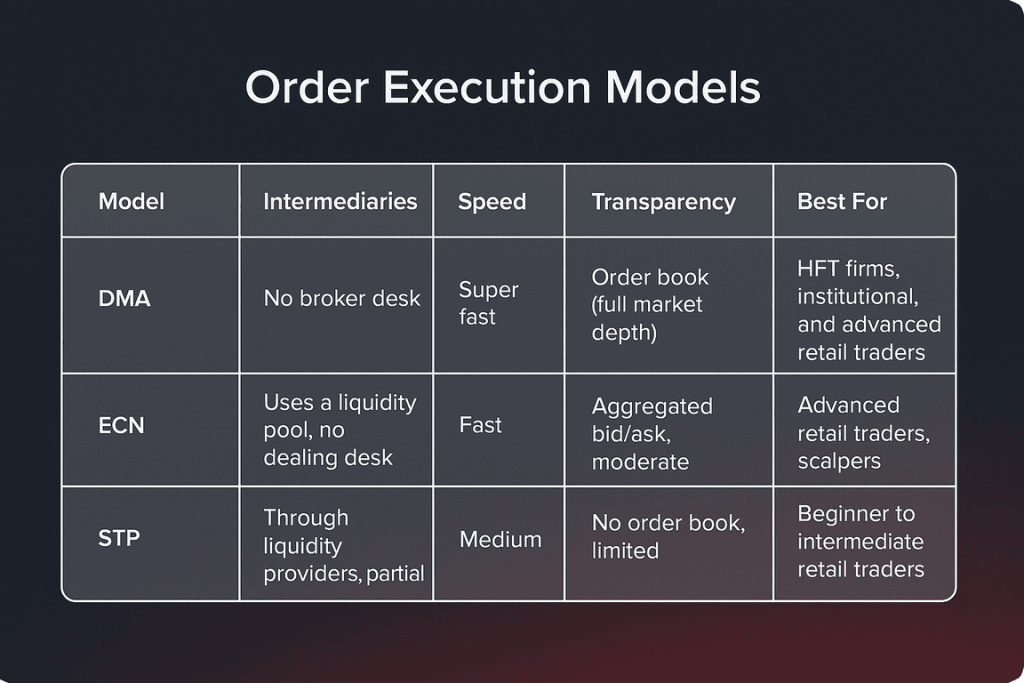
ดังนั้นคุณควรเลือก:
- DMA หากคุณต้องการความแม่นยำ ความโปร่งใส และการควบคุมการดำเนินการที่สมบูรณ์
- ECN หากคุณต้องการราคาที่มีการแข่งขันและการเติมเต็มที่เหมาะสมโดยไม่จำเป็นต้องดูรายการสั่งซื้อทั้งหมด
- มิฉะนั้น STP หากคุณชอบความสะดวกในการใช้งานและไม่ใช้กลยุทธ์ที่ซับซ้อน
ประโยชน์ของการใช้ DMA
DMA ได้ปฏิวัติวงการเทรดดิ้งด้วยการมอบสิทธิประโยชน์ที่ช่วยยกระดับกระบวนการเทรด ตั้งแต่การให้ข้อมูลเชิงลึกเกี่ยวกับตลาดไปจนถึงการเพิ่มประสิทธิภาพด้านต้นทุน DMA ตอบโจทย์ความต้องการของเทรดเดอร์ยุคใหม่ เรามาเจาะลึกข้อดีเหล่านี้เพิ่มเติมเพื่อทำความเข้าใจว่า DMA กำลังเปลี่ยนแปลงภูมิทัศน์การเทรดอย่างไร
เพิ่มความโปร่งใส
ข้อได้เปรียบสำคัญของการเข้าถึงตลาดโดยตรง (Direct Market Access) คือระดับความโปร่งใส ซึ่งเห็นได้จากการเข้าถึงสมุดคำสั่งซื้อขายของตลาดโดยตรง เทรดเดอร์สามารถดูราคาเสนอซื้อและเสนอขายแบบเรียลไทม์ รวมถึงปริมาณคำสั่งซื้อขาย ช่วยให้สามารถตัดสินใจซื้อขายได้อย่างชาญฉลาดและเห็นพลวัตของตลาด การมองเห็นเชิงลึกและสภาพคล่องของตลาดนี้มีบทบาทสำคัญอย่างยิ่งต่อกลยุทธ์ที่เน้นการวิเคราะห์อารมณ์และการเปลี่ยนแปลงของราคาในตลาด
การดำเนินการซื้อขายที่รวดเร็ว
ยิ่งไปกว่านั้น DMA ยังมีชื่อเสียงในด้านความสามารถในการเร่งการดำเนินการซื้อขายอย่างราบรื่น DMA ช่วยให้เทรดเดอร์สามารถส่งคำสั่งซื้อขายไปยังตลาดได้โดยไม่ต้องผ่านเคาน์เตอร์ซื้อขายของบริษัทนายหน้าซื้อขายหลักทรัพย์ เส้นทางตรงนี้เป็นประโยชน์อย่างยิ่งในช่วงที่ตลาดมีความผันผวน เมื่อราคาผันผวนอย่างรวดเร็ว ช่วยให้เทรดเดอร์สามารถคว้าโอกาสในตลาดได้ ความเร็วในการดำเนินการซื้อขายของ DMA มีบทบาทในการใช้ประโยชน์จากการเปลี่ยนแปลงของราคาและหลีกเลี่ยงปัญหาการลื่นไถลที่อาจเกิดขึ้นได้ ซึ่งอาจเกิดขึ้นได้หากใช้วิธีการดำเนินการที่ช้ากว่า
ลดต้นทุนการทำธุรกรรม
ยิ่งไปกว่านั้น DMA มักพิสูจน์ให้เห็นถึงความคุ้มค่าด้านต้นทุนมากกว่าวิธีการซื้อขาย การตัดคนกลางออกไปช่วยลดต้นทุนการทำธุรกรรม ทำให้ DMA เป็นตัวเลือกที่น่าสนใจทางการเงินสำหรับเทรดเดอร์ที่มีปริมาณการซื้อขายสูง ผลกระทบโดยรวมของค่าธรรมเนียมต่อการซื้อขายสามารถเพิ่มผลกำไรและประสิทธิภาพในการซื้อขายสำหรับเทรดเดอร์ที่ซื้อขายเป็นประจำได้อย่างมาก
You may also like
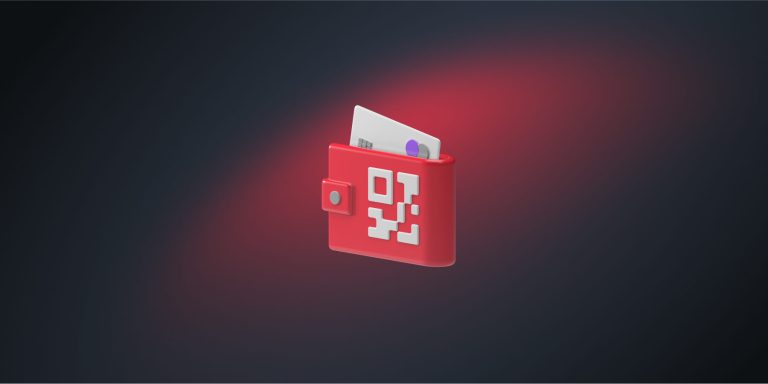
การควบคุมการค้าและการลดการจัดการ
นอกจากข้อได้เปรียบแล้ว DMA ยังมอบอิสระในการตัดสินใจซื้อขายให้กับเทรดเดอร์ พวกเขาสามารถวางคำสั่งซื้อขายในตลาดได้โดยตรง ช่วยให้สามารถปรับกลยุทธ์การซื้อขายและสภาวะตลาดให้สอดคล้องกับกลยุทธ์ได้แม่นยำยิ่งขึ้น ยิ่งไปกว่านั้น ความเสี่ยงจากการควบคุมราคาหรืออคติจากโบรกเกอร์ที่ลดลง ซึ่งเป็นปัญหาที่พบได้บ่อยใน นายหน้าซื้อขายหลักทรัพย์ การตั้งค่า – ถือเป็นอีกหนึ่งประโยชน์ของการใช้ DMA ระดับการควบคุมและการลดอคตินี้มีค่าอย่างยิ่งสำหรับเทรดเดอร์ที่แสวงหาความโปร่งใสและความเป็นอิสระในการซื้อขาย
ข้อควรพิจารณาและความเสี่ยงของ DMA
แม้ว่า DMA จะมีประโยชน์มากมาย แต่ผู้ค้าต้องพิจารณาความเสี่ยงและภาระผูกพันที่มาพร้อมกับมัน ความเสี่ยงและภาระผูกพันเหล่านี้มีตั้งแต่ข้อกำหนดทางเทคโนโลยี ไปจนถึงข้อกำหนดด้านปฏิบัติการและการปฏิบัติตามกฎระเบียบ
ความต้องการด้านเทคโนโลยี
DMA สามารถดำเนินการได้เฉพาะกับการตั้งค่าการเทรดที่มีประสิทธิภาพสูงและมีการเชื่อมต่ออินเทอร์เน็ตความเร็วสูงที่เสถียร หากเทรดเดอร์ไม่มีเทคโนโลยีที่รองรับการดำเนินการโดยตรง เทรดเดอร์อาจต้องเผชิญกับความล่าช้า การดำเนินการนอกตลาด หรือความล้มเหลวของการตั้งค่าการเทรดทั้งหมดในช่วงเวลาที่เลวร้ายที่สุด (ซึ่งอาจทำให้คุณพลาดโอกาส หรือสูญเสียเงินได้)
ไม่มีการแทรกแซงจากนายหน้า
DMA มอบอิสระอย่างเต็มที่แก่เทรดเดอร์ ซึ่งหมายความว่าคำสั่งซื้อหรือขายใดๆ ก็ตามจะไม่สามารถถูกตรวจสอบหรือดำเนินการโดยโบรกเกอร์ได้ การควบคุมอย่างสมบูรณ์นั้นมีความเสี่ยงหลังจากผ่านไประยะหนึ่ง เนื่องจากความเสี่ยงจากความผิดพลาดของมนุษย์จะเพิ่มขึ้น (เช่น การส่งคำสั่งซื้อขายที่ยาวเกินไปในขณะที่ตลาดอยู่ในช่วงขาลง การซื้อคำสั่งผิดประเภท หรือการซื้อขายในสถานะที่ใหญ่เกินไปในตลาดที่มีความผันผวน) ความผิดพลาดเหล่านี้อาจสร้างความเสียหายมหาศาล
ต้องมีทักษะที่กว้างขวาง
เทรดเดอร์ต้องมีทักษะที่จำเป็นอย่างยิ่งในการดำเนินการ DMA อย่างมีประสิทธิภาพ โดยเฉพาะอย่างยิ่งในแง่ของการเข้าใจความลึกของตลาด/การอ่านความลึกของตลาด การรู้จุดยึดเพื่อเข้าและออกจากสถานะอย่างถูกต้อง และการไม่มีโบรกเกอร์ (หรือ "คนกลาง") คอยคั่นกลางระหว่างคุณกับตลาดเมื่อจัดการสถานะที่เปิดอยู่ ดังนั้น การปรับตัวของเทรดเดอร์ที่ยังไม่เป็นมืออาชีพอาจเป็นเรื่องที่น่ากังวลและมีความเสี่ยงในขณะที่พวกเขาต้องฝ่าฟันความซับซ้อนในระดับใหม่เหล่านี้
ความเสี่ยงต่อผลกระทบต่อตลาด
เทรดเดอร์ในฐานะเทรดเดอร์ DMA ควรระมัดระวังว่า หากคุณทำการซื้อขายจำนวนมากโดยไม่แบ่งคำสั่งซื้อขายออกเป็นคำสั่งซื้อขายขนาดเล็กโดยใช้อัลกอริทึมเช่นเดียวกับที่ทำกับโบรกเกอร์ การซื้อขายนั้นอาจทำให้ราคาตลาดขยับตัวได้ ความเสี่ยงที่เทรดเดอร์ DMA จะส่งผลกระทบต่อราคาตลาดอาจสูงขึ้นหากเทรดเดอร์ทำการซื้อขายคำสั่งซื้อขายขนาดใหญ่ในตลาดที่มีสภาพคล่องต่ำ ซึ่งทำให้คำสั่งซื้อขายขนาดใหญ่เพียงรายการเดียวอาจส่งผลกระทบต่อราคาต่อสถานะของพวกเขาได้ง่ายขึ้น
การปฏิบัติตามกฎระเบียบ
DMA เกี่ยวข้องกับการเข้าถึงตลาดแลกเปลี่ยนทางการเงินได้ทันที และด้วยเหตุนี้จึงต้องอยู่ภายใต้การกำกับดูแลที่เข้มงวด เทรดเดอร์มีหน้าที่ต้องปฏิบัติตามกฎระเบียบต่างๆ เช่น MiFID II ในยุโรป หรือกฎระเบียบของสำนักงานคณะกรรมการกำกับหลักทรัพย์และตลาดหลักทรัพย์ (ก.ล.ต.) ในสหรัฐอเมริกา ซึ่งควบคุมคุณภาพการดำเนินการและความโปร่งใสของราคา ข้อกำหนดในการรายงาน และวิธีการจัดการและจัดเก็บข้อมูล การไม่ปฏิบัติตามมาตรฐานเหล่านี้อาจนำไปสู่การลงโทษทางการเงินหรือการระงับการเข้าถึง
แนวโน้ม DMA ในปี 2025
เมื่อตลาดเติบโตเต็มที่และเทคโนโลยีการซื้อขายมีการพัฒนา การเข้าถึงตลาดโดยตรง (Direct Market Access) ก็เปลี่ยนแปลงไปอย่างรวดเร็วเช่นกัน โดยคำนึงถึงความเร็ว ขนาด และระบบอัตโนมัติ มีแนวโน้มหลายประการที่เราเห็นว่าจะเกิดขึ้นในปี 2568 ซึ่งจะเป็นตัวขับเคลื่อนอนาคตของ DMA:
กลยุทธ์การดำเนินการตาม AI
บริการ DMA กำลังผสานรวมการเรียนรู้ของเครื่องและอัลกอริทึมการดำเนินการที่ขับเคลื่อนด้วย AI เข้าด้วยกันมากขึ้น เพื่อกำหนดจังหวะคำสั่งซื้อขายที่ดีขึ้น ลดความคลาดเคลื่อนของราคา (Slippage) และปรับตัวให้เข้ากับสภาพคล่องที่เปลี่ยนแปลงไปแบบเรียลไทม์ ซึ่งหมายความว่าเทรดเดอร์สามารถบูรณาการการตัดสินใจที่ซับซ้อนภายในระบบนิเวศการเข้าถึงโดยตรงให้เป็นระบบอัตโนมัติได้
โครงสร้างพื้นฐานที่มีความหน่วงต่ำเป็นพิเศษ
ปัจจุบัน บริษัทต่างๆ กำลังทุ่มงบประมาณมหาศาลไปกับการเชื่อมต่อแบบไร้ความหน่วง (zero-latency) การวางตำแหน่งแลกเปลี่ยน (exchange co-location) และข้อมูลตลาดความเร็วสูง การประมวลผลเหตุการณ์แบบเรียลไทม์หมายความว่า ยิ่งเวลาที่ใช้ตั้งแต่สัญญาณไปจนถึงการดำเนินการนานเท่าไหร่ ผู้ใช้ DMA ก็จะยิ่งใช้ประโยชน์จากความถี่สูง การซื้อขายแบบ Arbitrageurs และกลยุทธ์การซื้อขายอื่นๆ ได้น้อยลงเท่านั้น
การบูรณาการกับ Algo และ API Trading
ปัจจุบันแพลตฟอร์ม DMA ได้รับการบูรณาการกับกลไกการซื้อขายอัลกอริทึมและ API แบบเปิด ช่วยให้ผู้ซื้อขายในระดับสถาบันและเชิงปริมาณสามารถดำเนินการด้วยความเร็ว มาตราส่วน และความยืดหยุ่น
การทำให้ DMA เป็นประชาธิปไตย
โดยพื้นฐานแล้ว กองทุนป้องกันความเสี่ยงไม่ใช่เกมเดียวในเมืองที่มีฟังก์ชัน DMA ที่ซับซ้อนหรือขั้นสูงอีกต่อไป แพลตฟอร์มการซื้อขายรายย่อยมีการเข้าถึงแบบ DMA ที่จำกัดมากขึ้นเรื่อยๆ ซึ่งเพิ่มความซับซ้อนในระดับหนึ่งที่ช่วยให้นักเทรดรายย่อยที่เชี่ยวชาญที่สุดสามารถเข้าถึงสมุดคำสั่งซื้อขายแบบเรียลไทม์และการกำหนดเส้นทางการซื้อขายที่ปรับแต่งได้
ระบบอัตโนมัติและการปฏิบัติตามข้อกำหนด
เนื่องจากกฎระเบียบมีความซับซ้อนเพิ่มมากขึ้นทั่วโลก (ตัวอย่างเช่น MiFID II และ Dodd Frank, EMIR) ผู้ให้บริการ DMA จึงสร้างเครื่องมือที่เกี่ยวข้องกับการปฏิบัติตามข้อกำหนดโดยตรงลงในระบบการซื้อขาย เช่น การเฝ้าระวังการค้า การรายงานการค้า และการกำหนดเส้นทางคำสั่งซื้ออัจฉริยะโดยที่การปฏิบัติตามข้อกำหนดสะท้อนถึงกฎเกณฑ์ของเขตอำนาจศาล
ในปี 2568 DMA ไม่ได้มีแค่เรื่องความเร็วเท่านั้น แต่ยังรวมถึงการดำเนินการอย่างชาญฉลาด โครงสร้างพื้นฐานที่ปรับขนาดได้ และความยืดหยุ่นแบบเรียลไทม์อีกด้วย
บทสรุป
Direct Market Access ได้พลิกโฉมวงการการซื้อขายด้วยการนำเสนอการผสมผสานระหว่างประสิทธิภาพ ความโปร่งใส และการควบคุมที่สอดคล้องกับความต้องการของเทรดเดอร์ แม้ว่าจะต้องใช้ความรู้ด้านตลาดและการลงทุนทางเทคโนโลยี แต่ประโยชน์ที่ได้รับนั้นไม่อาจปฏิเสธได้ ด้วยความก้าวหน้าทางเทคโนโลยีการซื้อขาย Direct Market Access DMA จึงเป็นเครื่องพิสูจน์ถึงความก้าวหน้าในอุตสาหกรรม DMA ช่วยให้เทรดเดอร์สามารถดำเนินการซื้อขายได้อย่างมีประสิทธิภาพ และใช้ประโยชน์จากโอกาสต่างๆ ตามแนวโน้มของตลาด
FAQ
ไม่เชิง DMA (Direct Market Access) ช่วยให้เทรดเดอร์สามารถส่งคำสั่งซื้อขายไปยังสมุดคำสั่งซื้อขายของตลาดหลักทรัพย์ได้โดยตรง ขณะเดียวกัน ECN (Electronic Communication Network) จะจับคู่คำสั่งซื้อขายจากหลายฝ่าย เช่น ธนาคารและเทรดเดอร์รายอื่น ทั้งสองรูปแบบนี้ต่างจากโบรกเกอร์แบบดั้งเดิม แต่ DMA ให้ความโปร่งใส การประมวลผล และการควบคุมที่มากขึ้น
ใช่ ผู้ค้าปลีกขั้นสูงสามารถเข้าถึงได้ผ่านโบรกเกอร์ที่เสนอ DMA หรือแพลตฟอร์มการซื้อขาย แต่บัญชีค้าปลีกมักต้องมียอดคงเหลือในบัญชีที่สูงกว่า ประสบการณ์การซื้อขายที่มากขึ้น และความรู้เกี่ยวกับการดำเนินการหรือการกำหนดเส้นทางคำสั่งซื้อที่มากขึ้น
DMA ช่วยให้เทรดเดอร์สามารถเข้าถึงสมุดคำสั่งซื้อขายในตลาดสดได้โดยตรง ขณะที่ STP (Straight Through Processing) รับคำสั่งซื้อขายของลูกค้าและส่งคำสั่งซื้อขายไปยังผู้ให้บริการสภาพคล่องในนามของลูกค้าโดยอัตโนมัติ โดยไม่ต้องมีการตรวจสอบหรือแทรกแซงด้วยตนเอง กล่าวอีกนัยหนึ่ง DMA มอบความโปร่งใสและการควบคุมที่มากขึ้นให้กับการซื้อขายของลูกค้า เมื่อเทียบกับการใช้ STP ซึ่งไม่มากก็น้อย ถูกออกแบบมาให้ทำงานแบบพาสซีฟและทำงานอัตโนมัติมากกว่า
มีโบรกเกอร์ Direct Market Access จำนวนมากที่ให้บริการลูกค้าสถาบันและเทรดเดอร์รายย่อยขั้นสูง ซึ่งให้บริการเข้าถึงตลาดแลกเปลี่ยนทั่วโลก ด้วยโครงสร้างพื้นฐานที่มีความหน่วงต่ำและสามารถเข้าถึงตลาดได้อย่างเต็มรูปแบบ บางรายเป็นโบรกเกอร์สถาบันระดับ Tier 1 และบางรายเป็นแพลตฟอร์มการซื้อขายขั้นสูงที่ให้บริการ DMA
อัปเดต:
28 เมษายน 2568

